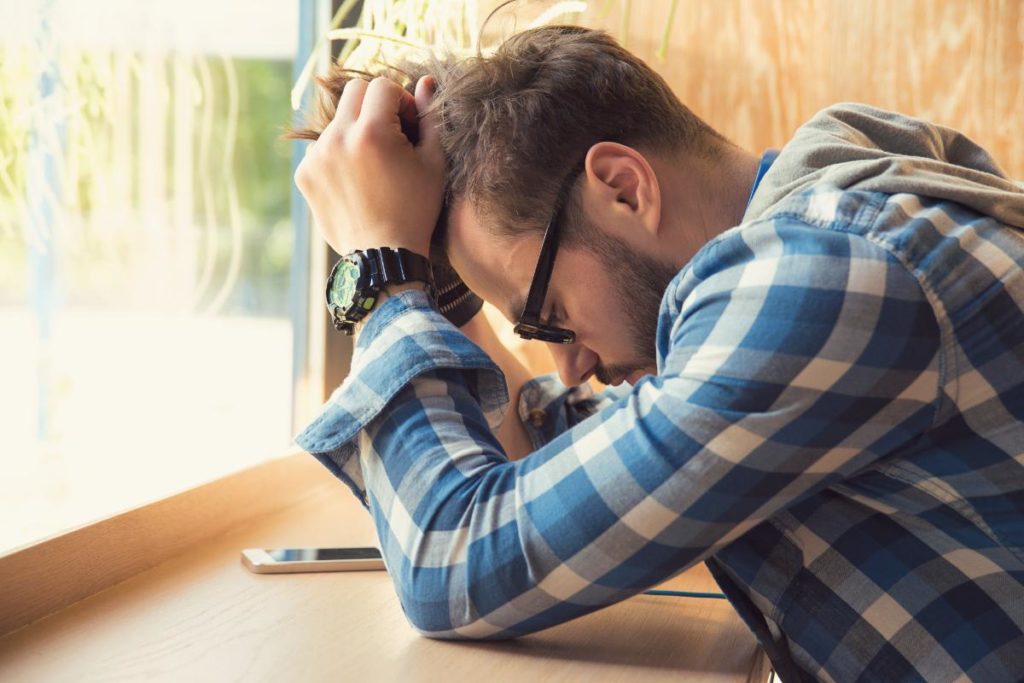Experiencing anxiety and worry throughout life is part of being human. But natural amounts of anxiety can easily give over to an anxiety disorder. It can be hard to distinguish between what is normal and what deserves attention as a mental health issue.
One of the most common anxiety disorders is generalized anxiety disorder (GAD). Other common anxiety disorders are obsessive-compulsive disorder, panic disorder, post-traumatic stress disorder, phobias, and social anxiety disorder. Watching for the signs of anxiety can help you decide when it is the right time to seek professional care or support for dealing with your mental health. Contact AssuraSource online or at 972.233.1010 to learn about the benefits of an anxiety therapy program.
5 Signs of Anxiety Disorders
1. Pervasive Worry
Pervasive worry is more or less a unifying thread across all anxiety disorders. It is a particular hallmark of GAD. The worry people experience with an anxiety disorder is usually disconnected from reality or else blown out of proportion. This type of pervasive worry is uncontrollable and not self-inflicted. In addition, the worry progresses to the point that it interferes with a person’s daily life and activities, making them less productive or even cognitively less effective.
2. Irritability
Research indicates that anxiety and irritability are linked. In fact, adolescents diagnosed with GAD reported irritability levels twice that of the general population.
3. Sleep Problems
Mental health practitioners are not yet sure if sleep problems lead to anxiety or if the reverse is true. Regardless, the issues often run together. What is clear is that treating an anxiety disorder typically improves sleep as well.
4. Panic Attacks
Panic attacks are one sign of anxiety that is specific to panic disorder. It is possible to experience a panic attack with GAD, though the chances are lower than those diagnosed with an outright panic disorder. The symptoms experienced during a panic attack include:
- Elevated heartbeat
- Sweating
- Shaking
- Restricted breathing
- Nausea
- Chest tightness
Panic attacks can be frightening experiences that happen randomly or are directly triggered by certain stimuli.
5. Social Avoidance
This sign is largely coupled with social anxiety disorder. However, symptomatology across anxiety disorders means that social avoidance is a common sign of anxiety. For instance, someone with a panic disorder may self-isolate because they worry about suffering a panic attack in public. More specifically, social anxiety is related to:
- Anxiety or fear in relation to social events or parties
- Excessive worry about being judged by others
- Crippling fear that you will embarass yourself in a social sitution
- Total avoidance of social scenarios
High-Quality Anxiety Therapy Options
Therapy is one of the best treatment options for dealing with an anxiety disorder. Mental health practitioners help people make sense of their systems, officially diagnose the anxiety disorder in question, and work at addressing the underlying causes of the anxiety disorder. One of the foremost anxiety therapies is cognitive-behavioral therapy (CBT).
CBT challenges negative thinking patterns that have ingrained themselves in a person’s brain and replace them with healthier patterns. By changing these foundational thoughts that drive an anxiety disorder, CBT also hopes to alter people’s behavior in ways that support improved mental health.
Another anxiety therapy employed in cases where a phobia is present is exposure therapy. Exposure therapy uses systematic desensitization, which is the process of gradual exposure from light stimuli to a more aggressive example of a phobia. Building up slowly over time is supposed to increase tolerance for the stimuli until the phobia’s hold over someone’s mind is decreased.
Explore Anxiety Therapy at AssuraSource Today
At AssuraSource, our team is ready to help you or a loved one overcome signs of anxiety with our comprehensive therapy options. Learn about additional anxiety therapies by calling 972.233.1010 or visiting us online.

